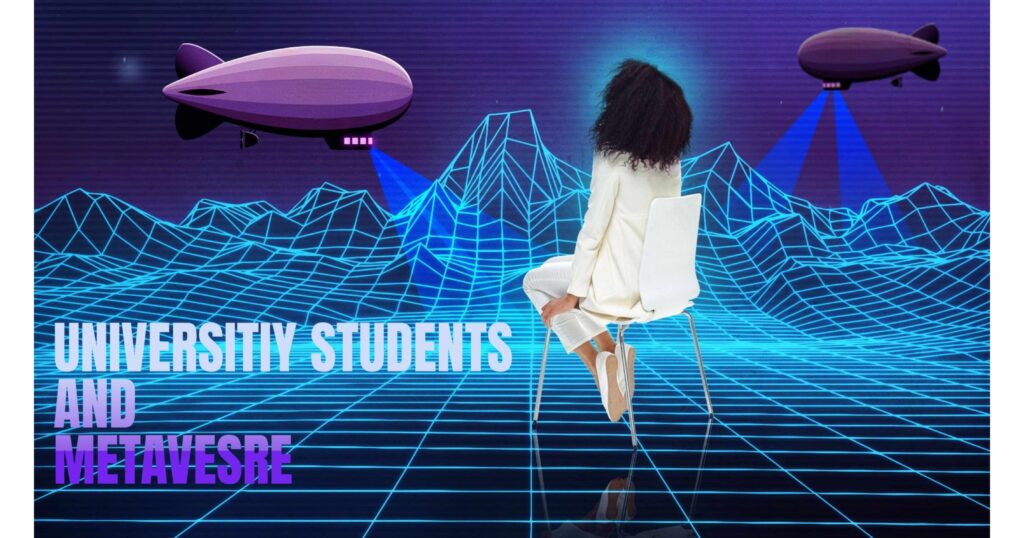Picture a virtual classroom where you can walk through ancient Rome, perform science experiments in zero gravity, or team up with classmates globally—all from home. This is the potential of the metaverse, a connected digital universe changing how we learn, work, and connect.
As the metaverse grows in fields like gaming, education, healthcare, and business, universities are preparing students for this new era. This article explores how higher education is equipping students with the skills to succeed in the metaverse. Whether you’re a student, educator, or tech enthusiast, you’ll see how universities are driving the future of digital innovation.

Understanding the Metaverse
What is the Metaverse?
The metaverse is a blend of virtual reality (VR), augmented reality (AR), and the internet, creating immersive digital experiences. It’s a space where people can interact, learn, work, and play in ways that were once the stuff of science fiction.
Key Technologies Driving the Metaverse
- VR and AR: Tools for creating immersive environments.
- Blockchain: Enables secure transactions and ownership of digital assets.
- AI: Powers intelligent interactions and personalized experiences.
- 3D Modeling: Builds the virtual worlds and objects within the metaverse.
Industries Impacted by the Metaverse
From gaming and education to healthcare and real estate, the metaverse is revolutionizing how industries operate and innovate.
Integrating Metaverse Concepts into Curricula
New Degree Programs and Courses
Universities are launching specialized programs in metaverse-related fields, such as:
- Virtual Reality Design
- Digital Ethics
- Blockchain Technology
These programs prepare students for careers in the metaverse economy.
Interdisciplinary Learning
To address the diverse applications of the metaverse, universities are combining tech education with arts, business, and social sciences. For example:
- Arts: Teaching students to design immersive virtual environments.
- Business: Exploring how companies can leverage the metaverse for marketing and commerce.
- Social Sciences: Studying the ethical and societal implications of virtual worlds.
Focus on Emerging Technologies
Courses on VR/AR development, 3D modeling, AI, and blockchain are becoming staples in university curricula, ensuring students are familiar with the latest advancements.
Hands-On Learning and Practical Experience
VR/AR Labs and Maker Spaces
Universities are investing in state-of-the-art labs where students can experiment with VR/AR technologies. These spaces foster creativity and innovation, allowing students to build and test their own virtual environments.
Internships and Industry Partnerships
Collaborations with tech companies like Meta, Microsoft, and Google provide students with real-world experience. Internships and co-op programs bridge the gap between classroom learning and industry demands.
Capstone Projects and Hackathons
Students are encouraged to solve real-world problems through collaborative projects and hackathons. These experiences teach teamwork, problem-solving, and technical skills while fostering creativity.
Research and Innovation in the Metaverse
University Research Centers
Dedicated labs and institutes are exploring metaverse technologies and their applications. For example:
- Stanford’s Virtual Human Interaction Lab: Studies how people interact in virtual environments.
- MIT’s Media Lab: Pioneers research in AI, blockchain, and immersive technologies.
Student-Led Research
Undergraduates and graduates are given opportunities to contribute to cutting-edge metaverse research, gaining hands-on experience and making meaningful contributions to the field.
Commercializing Innovations
Universities are supporting students in turning their research into startups and products, fostering entrepreneurship and innovation.
Emphasis on Soft Skills
Creativity and Design Thinking
Students are taught to design immersive and user-friendly metaverse experiences, blending technical skills with artistic creativity.
Collaboration and Communication
The metaverse requires global, virtual teamwork. Universities are preparing students to collaborate effectively across cultures and time zones.
Ethical and Social Considerations
As the metaverse evolves, so do concerns about digital privacy, security, and inclusivity. Universities are addressing these issues through courses and research on digital ethics.
Partnerships with Industry
Collaborations with Tech Giants
Universities are partnering with leading tech companies for research, training, and curriculum development. These collaborations ensure that students learn the most relevant skills.
Guest Lectures and Workshops
Industry experts are invited to share insights and trends with students, providing a glimpse into the real-world applications of their studies.
Funding and Sponsorships
Tech companies are supporting university programs through grants and sponsorships, enabling institutions to offer cutting-edge resources and opportunities.
Online and Hybrid Learning Models
Expanding Online Education
Universities are offering MOOCs (Massive Open Online Courses) and online degree programs in metaverse-related fields, making education more accessible.
Blended Learning
Combining online and in-person instruction provides flexibility and caters to different learning styles.
Global Reach
Online programs enable students worldwide to access top-tier metaverse education, breaking down geographical barriers.
Preparing for the Future of Work
Career Services and Tech Training
Universities are offering resume workshops, interview prep, and tech skill certifications to help students stand out in the job market.
Entrepreneurship Programs
Incubators and accelerators are helping students launch metaverse startups, providing mentorship, funding, and resources.
Alumni Networks
Leveraging alumni connections for mentorship and job opportunities is a key strategy for helping students transition into the workforce.
Case Studies: Universities Leading the Way
Stanford University
Known for its VR/AR research and innovation-driven programs, Stanford is at the forefront of metaverse education.
MIT (Massachusetts Institute of Technology)
MIT’s Media Lab is pioneering research in AI, blockchain, and immersive technologies, shaping the future of the metaverse.
University of California, Berkeley
UC Berkeley offers courses on blockchain and digital assets, preparing students for the metaverse economy.
Conclusion
Universities are key in preparing students for the metaverse. They’re incorporating metaverse concepts into courses, offering hands-on learning experiences, and partnering with industry leaders. These efforts help students develop the skills and mindset needed to succeed in this digital era.
As the metaverse grows, adaptability, innovation, and collaboration will be essential. For students and educators alike, now is the time to embrace these changes and help shape the future of this exciting new frontier.







